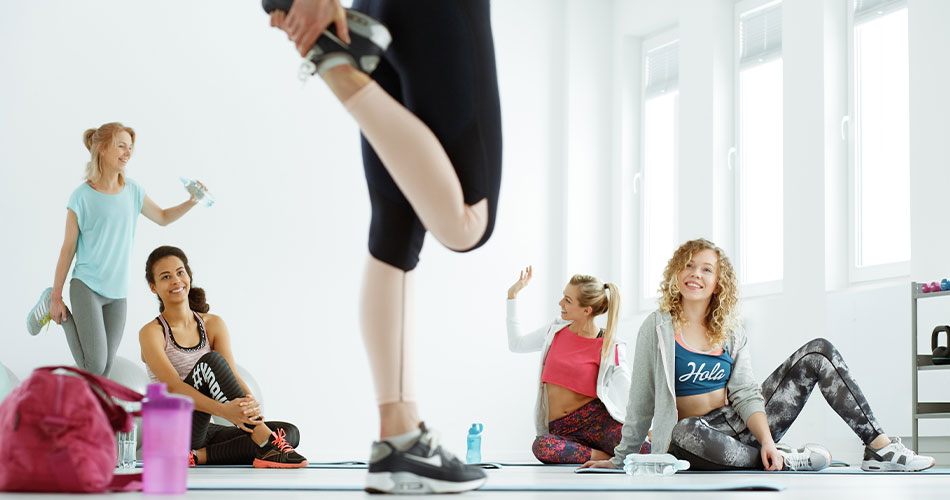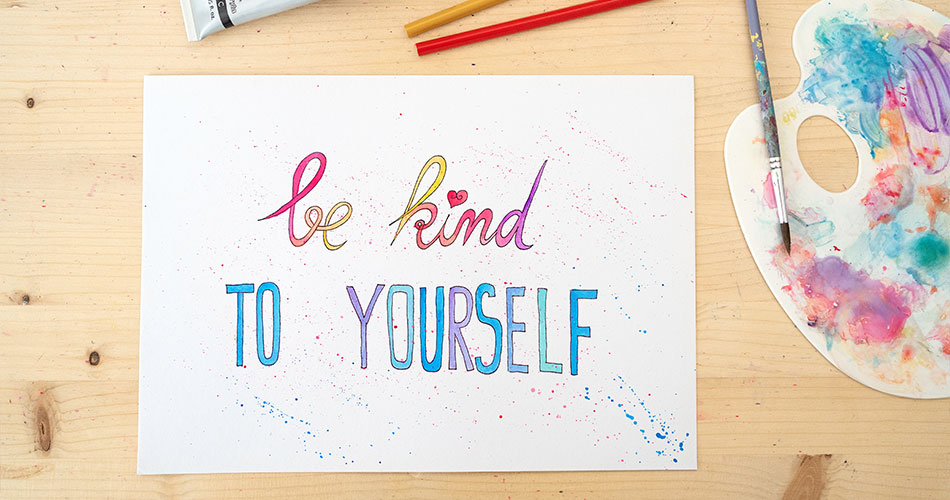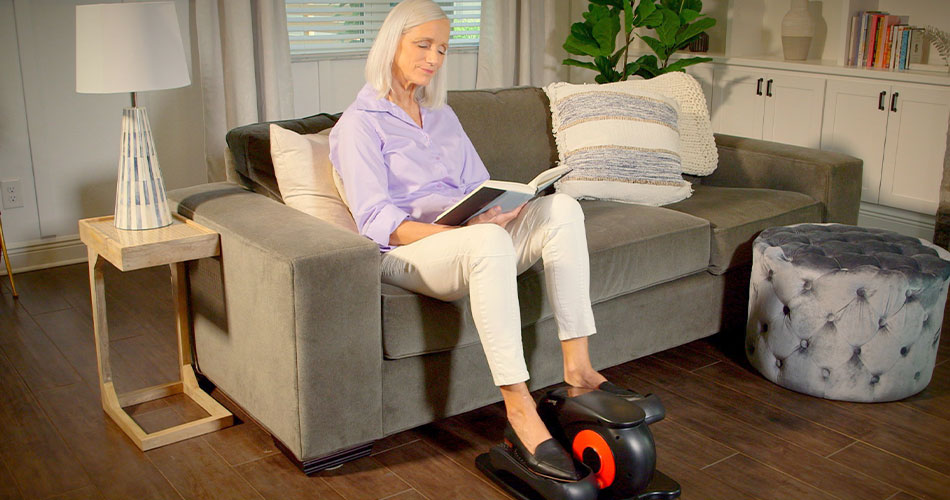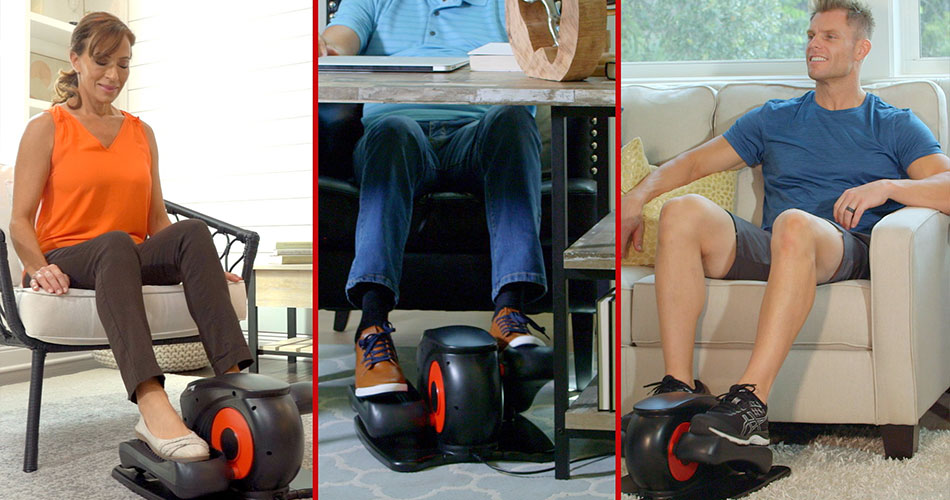When you live with a disability, exercising regularly isn’t always easy – but it is important. Doing a little exercise, even just a few times every week, can help you stay fit and healthy. What’s more, there are lots of ways you can do it in the comfort of your own home, for example with a mini elliptical exercise machine. Here are a few tips to help you get started.
Half the battle is getting started

It can be daunting to feel like you’re starting to exercise from scratch. If it’s been a while since you took part in any physical activity, or you just feel out of shape, you might find yourself put off. But if you start slowly, choosing an activity that you find easy – like using an elliptical stepper, for example – you’d be surprised how quickly you’ll get into the swing of things. Try setting yourself some realistic goals – you’ll find it’s a great way to stay motivated. And stick to a routine… maybe decide to exercise at the same time each day. That way you won’t find yourself slipping back into old habits.
Don’t go at it too hard, too soon

Any kind of vigorous exercise will put your body through its paces, which may feel uncomfortable at first. That’s quite normal, but you should stop exercising right away if you feel pain, nausea, dizziness, or faint. In other words, the best way to stay healthy while exercising is to listen to your body. Ignore the saying that you have to ‘push through the pain barrier’ – it can do you more harm than good. Just start slowly and work your way up, doing a little bit more in each session than you did in the previous one.
Stick with it and the results will come eventually

Most people who start exercising have a reason for doing so. For some it’s about losing weight, for others it’s about toning and building strength. Whatever your reason is, don’t be too disheartened if you don’t see instant results – they will come! First and foremost you need to get into the habit of exercising regularly. So why not consider something like an under the desk stepper, which lets you exercise while you’re sat still.
Start by setting some short-term goals. Yes, you might want to lose weight ultimately, but maybe before that you could focus on improving your mood or lowering your stress levels. You’ll find you hit these short-term targets quicker and having that sense of achievement is a great motivator.
Always make sure you warm up and cool down

It’s tempting to want to throw yourself into exercising as soon as you feel motivated. But actually, it’s kinder to your body if you start off with a quick warm up. Nothing too strenuous, just some light stretches, shoulder rolls and arm swings, maybe even raising your knees up to your chest one at a time. Likewise, when you’re done exercising, you should absolutely spend a few minutes doing the same movements as part of a cool down routine. Both warming up and cooling down helps to give your body a chance to reset after exercise and cuts the risk of muscles strains.
Don’t be too hard on yourself if you miss a session

You want to get into the habit of exercising and so it’s really important that you stick to a routine. That said, there will always be days and weeks when life gets in the way, and you don’t get chance to work out. On those days, don’t punish yourself. Acknowledge the fact that you’ve missed your exercise slot and simply make a promise to yourself that you’ll definitely show up the next day.
Remember you’re only competing with yourself

Exercise is about more than just physical challenges. It’s all too easy to be feel like you have a mental barrier to overcome, too. For example, if you’re self-conscious about your weight, you might not like the idea of exercising in front of other people. If you’re older, you might be worried about falling over and making a fool of yourself, or suffering an injury. The trick is to remember that you’re only ever competing against yourself. There’s always someone who’s stronger, faster or more flexible than you. Rather than worrying about that, focus on being a little bit better than you were yesterday and you’ll soon achieve your goals.
Chair-bound exercises are good starting point

Exercises that you do while sat down are quite helpful for anyone who lives with a disability. Not only can they help improve your posture and ease back pain, but they’re a great way to keep fit while watching TV! An under the desk exercise bike is a good place to start. Failing that, sit on a chair with your knees at a right angle to the floor. That way, you can maintain good posture while at the same time plant your feet for stability.
Try this new sit-down exercise machine – the Orbitrek MX

The Orbitrek MX is a genius new elliptical stepper that helps tighten and tone your lower body muscles and elevate your heart rate… all while you sit watching TV, talking on the phone or working at a desk. It’s a great way of getting away from your sedentary lifestyle and keeping fit in a way that’s fun and easy to do. Even better, with its 3 training modes and 5 speed levels, it’s perfect for everyone in your home, regardless of their level of ability. And it’s super low-impact, meaning you get all the benefits of its natural elliptical motion without the pounding impact of running on a treadmill.
Find out more about the benefits of the Orbitrek MX.
For those in the USA
For those in Canada:









